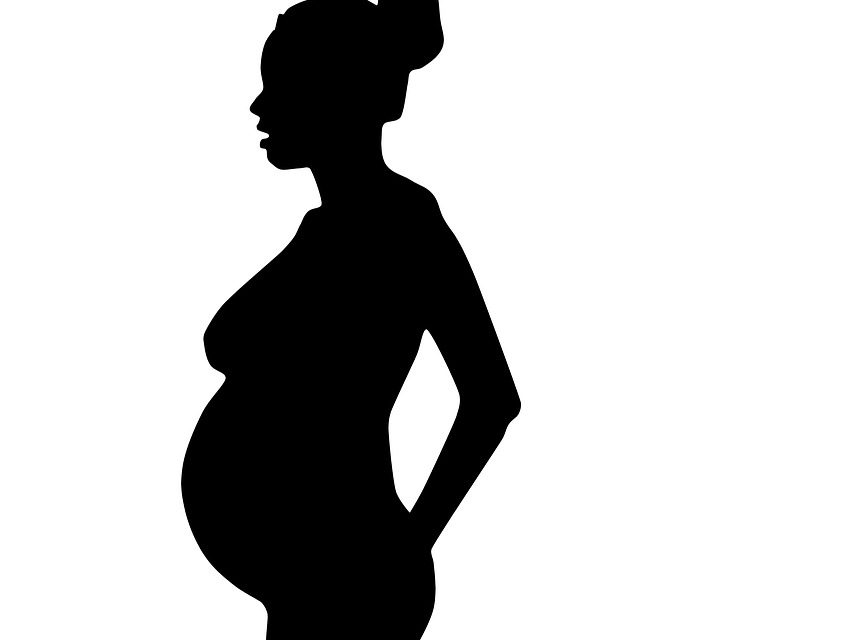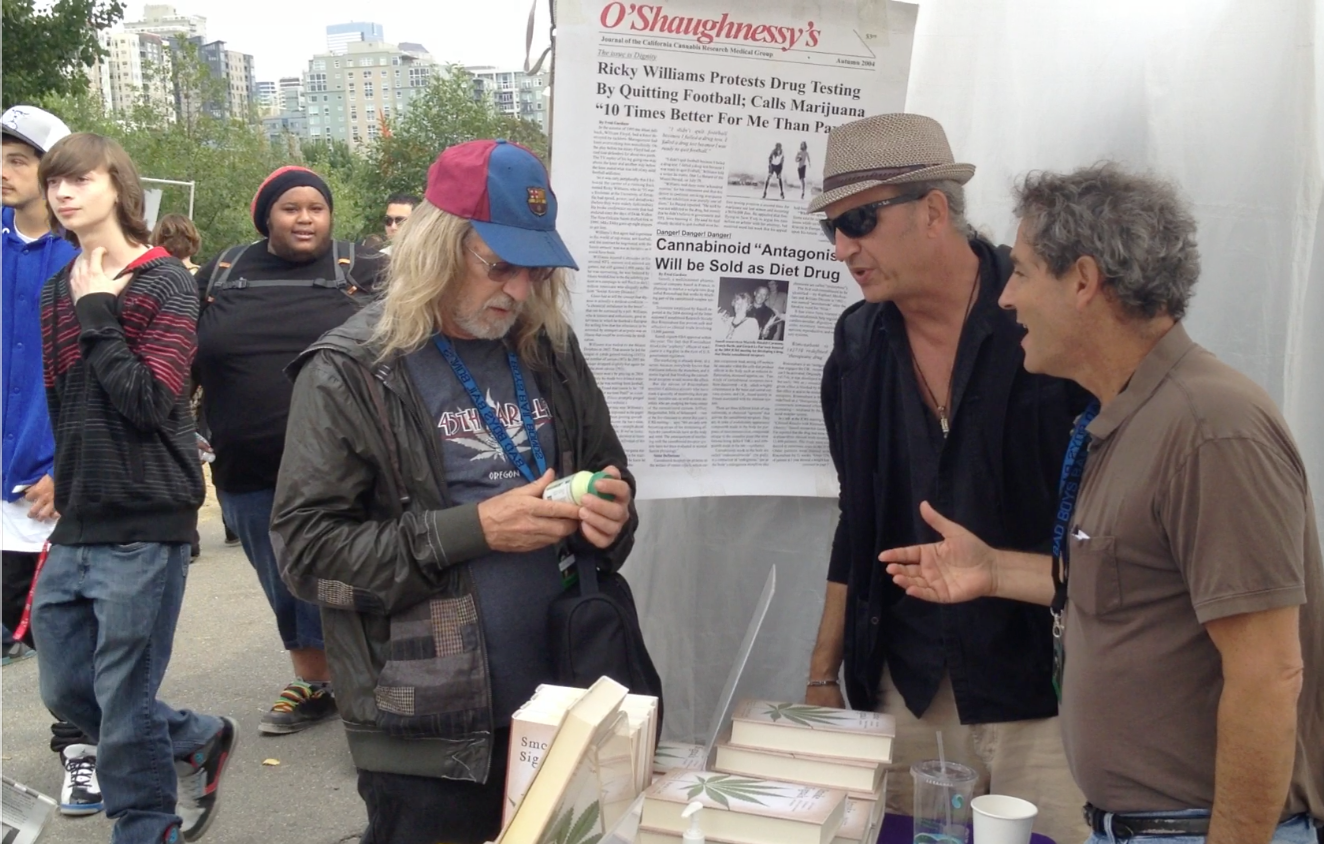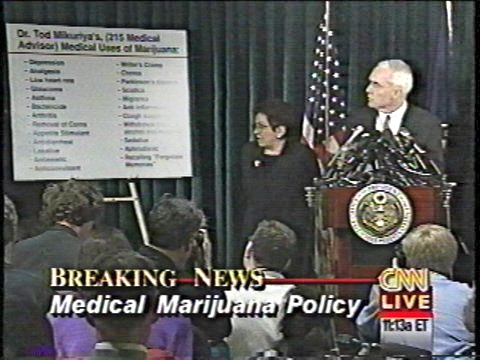Plutarch said an anecdote can tell more than a biography, and this very good piece by Hayley Fox in Rolling Stone on cannabis use during pregnancy tells us plenty. She starts off with the case of Shakira Kennedy:
Shakira Kennedy was 27 years old and living in Brooklyn when she found out she was going to have twins. While many women experience morning sickness in their first trimester, Kennedy’s unrelenting cycle of nausea and vomiting was so severe that she ended up in the emergency room multiple times throughout her pregnancy. She was treated for a slew of health issues, including dehydration and an inability to keep food down.
“I must have lost over 30 to 40 pounds in my first trimester,” says Kennedy.
Her body was completely depleted, so much so that she even passed out once on the train while taking her six-year-old daughter to school. She cycled through numerous prescription medications and dabbled in all kinds of over-the-counter fixes, but nothing worked. Desperate for relief that would still allow her to function as a parent, Kennedy turned to cannabis.
She had used it recreationally when she was younger and found it helped with various ailments — from lack of appetite to constipation — and hoped it could now be helpful in treating the barrage of symptoms associated with pregnancy. With New York medical marijuana licenses typically reserved for those with cancer or chronic illnesses, Kennedy sourced her weed through the illegal market. She used it, and it helped.
“It was literally the last resort,” she says.
At one of Kennedy’s prenatal visits, she admitted having used marijuana to help manage her debilitating symptoms. She was drug-tested and the results came back positive. Kennedy was told the test would be recorded in her medical file, and she thought that would be the extent of the fallout.
Yet when she returned to the hospital to deliver her twins a few months later, her babies were drug-tested for a range of substances, from cocaine to methamphetamine. According to the one-sheet test results reviewed by Rolling Stone, both infants came back negative for cannabinoids — as well as every other drug.
“I thought this would be an open and shut case,” she says.
In March of this year, though, the New York Administration for Children’s Services (ACS) filed a neglect petition against Kennedy in Brooklyn Family Court, alleging that she used marijuana while pregnant with her twins and caring for her daughter. Kennedy was ordered to undergo a substance abuse evaluation and ongoing random drug screens, says Jessica Marcus, an attorney at Brooklyn Defender Services, the firm that represented Kennedy in her case. She’s also been subjected to home inspections by ACS, and asked to attend a drug treatment program as well as a parenting class…
Many doctors encourage women to err on the side of caution and, as is par for the course in terms of pregnancy advice, ingest as few questionable substances as possible. Others point to recent articles, like a 2016 piece published in Obstetrics & Gynecology, which found that medical marijuana use during pregnancy is “not an independent risk factor for adverse neonatal outcomes” such as low weight and preterm birth, and emphasize that even if there are dangers, they are dramatically less severe than those associated with alcohol or opioid use.
The paper in Obstetrics & Gynecology that Fox cites was a systematic review and meta-analysis of 31 studies by Conner et al, who concluded: “Maternal marijuana use during pregnancy is not an independent risk factor for adverse neonatal outcomes after adjusting for confounding factors. Thus, the association between maternal marijuana use and adverse outcomes appears attributable to concomitant tobacco use and other confounding factors.”
Fox also quotes Dr. Carl Hart citing the first of several studies published by Melanie Dreher and colleagues showing that cannabis use during pregnancy was not harmful. (Her subsequent studies showed that the children of cannabis-using mothers did somewhat better in school than children of non-users.)
According to Carl Hart, a psychology professor at Columbia University and expert on drug use and addiction, available data indicates that marijuana has virtually no impact on babies’ abilities to think, make decisions, and problem solve.
“From what I have seen there have been no demonstrated cognitive impacts,” said Hart. “I can say that with fairly good confidence.”
He cites a 1991 study from Jamaica. In it, researchers followed 59 children through the first five years of their life; half of them came from mothers who consumed marijuana during pregnancy. Starting when they were one-day-old and continuing sporadic evaluation until they reached five years, researchers — using standardized models for assessment — found “no significant differences in developmental testing outcomes between children of marijuana-using and non-using mothers.”
“When I see people or hear people saying that mothers put their children in jeopardy by using marijuana, there’s simply no evidence to support that data,” said Hart.
Fox reports the claims of harm from the American College of Obstetricians and Gynecologists:
ACOG cites “worrisome” findings that indicate possible impaired neurodevelopment of the fetus, and the group discourages doctors from promoting medical marijuana use in pregnancy because the drug has no standardized dosing and isn’t regulated by the Food and Drug Administration.
The ACOG “Committee Opinion” has been very influential. In 2018 the California Medical Association used it to convince the state medical board to amend its practice guidelines so that doctors who approve cannabis use during pregnancy can be accused of substandard care! If a Rolling Stone reader clicked on the link, they would get ACOG’s recommendations to doctors:
- Before pregnancy and in early pregnancy, all women should be asked about their use of tobacco, alcohol, and other drugs, including marijuana and other medications used for nonmedical reasons.
- Women reporting marijuana use should be counseled about concerns regarding potential adverse health consequences of continued use during pregnancy.
- Women who are pregnant or contemplating pregnancy should be encouraged to discontinue marijuana use.
- Pregnant women or women contemplating pregnancy should be encouraged to discontinue use of marijuana for medicinal purposes in favor of an alternative therapy for which there are better pregnancy-specific safety data.
- There are insufficient data to evaluate the effects of marijuana use on infants during lactation and breastfeeding, and in the absence of such data, marijuana use is discouraged.
The ACOG experts’ great concern is that more women are discovering the medical benefits of marijuana:
“The self-reported prevalence of marijuana use during pregnancy ranges from 2% to 5% in most studies but increases to 15–28% among young, urban, socioeconomically disadvantaged women (1–5). Higher rates of use are found when querying women at the time of delivery rather than at prenatal visits because some users may not seek prenatal care (5). Notably, 34–60% of marijuana users continue use during pregnancy, with many women believing that it is relatively safe to use during pregnancy and less expensive than tobacco.”
Less expensive than tobacco?
The primary harm cited by the ACOG committee is NOT danger to the baby but the mom being afflicted by Cannabis Use Disorder!
“A recent study noted that 18.1% of pregnant women reporting marijuana use in the past year met criteria for marijuana abuse, or dependence, or both. (8). A growing number of states are legalizing marijuana for medicinal or recreational purposes, and its use by pregnant women could increase even further as a result.”
Fox cites another anti-marijuana expert expounding to National Prozac Radio:
In addition, studies have shown that exposure to weed in the womb can negatively impact motor skills, increase the risk of stillbirth and may even impact brain development, Dr. Dana Gossett, an OB/GYN and University of California, San Francisco professor, told NPR.
Fox’s piece is more than fair and balanced. It has a point of view.
“While researchers remain divided on the impact of cannabis use on a developing fetus, there is at least one proven danger of the drug; its capacity to trigger family services. ‘The main risk of cannabis use in pregnancy is child welfare,’ says Mishka Terplan, an OBGYN who teaches at Virginia Commonwealth University, who is an expert in opioids.”





